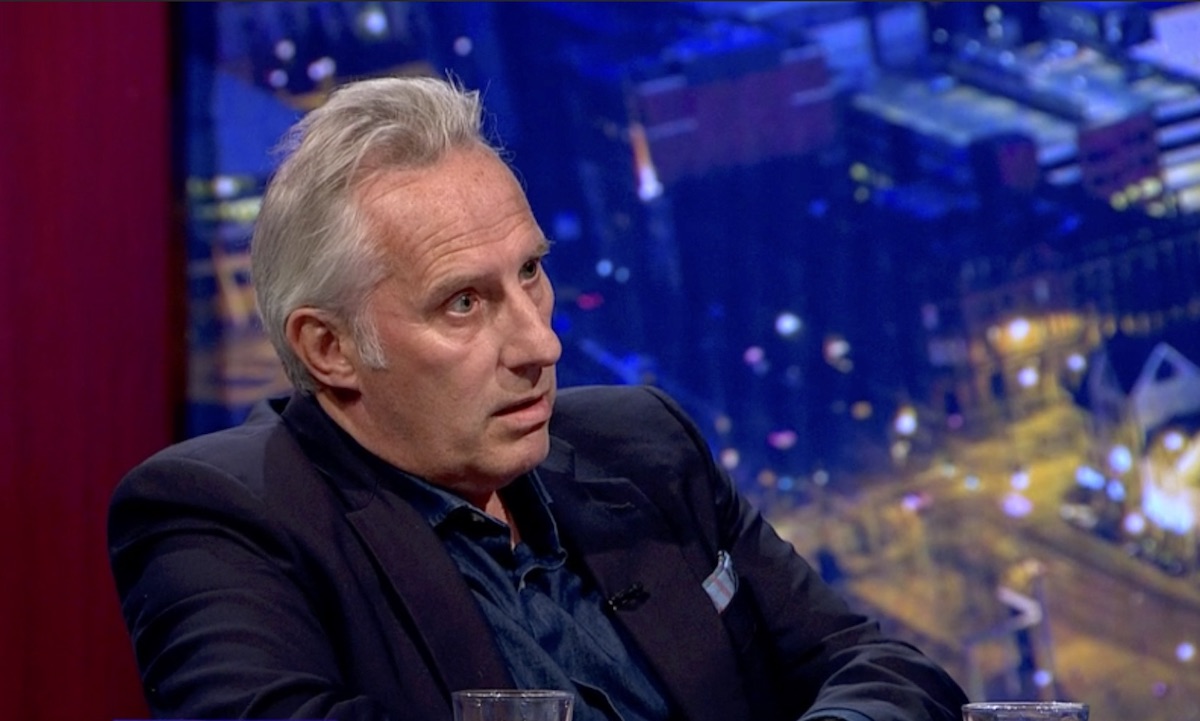
After an election in which the nationalist share of the vote overtook the unionist one for the first time, a senior DUP figure has admitted it could be an “ice age” before powersharing ever returns to Belfast.
Amid conflicting signals from the main unionist party following last week’s council election, it had been hoped the DUP would finally accept the outcome of the Assembly election last May and deliver its Ministers into an administration headed by Sinn Féin’s Michelle O’Neill.
But unionist hardliner Ian Paisley Jr has expressly “rubbished” the idea of a return to Stormont, which he said would be damaging to the union. Paisley again attacked post-Brexit trade regulations and dismissed calls for Irish reunification as a “post-election mood”.
Exploiting a detail of the 2006 St Andrews Agreement, the DUP, as the largest unionist party at Stormont, has blocked the operation of the Stormont Assembly since January 2022.
This week, former Alliance leader and senior British establishment figure, John Alderdice, joined those who have predicted moves to joint London/Dublin authority if the DUP continue to prevent a return of local devolved government in Belfast.
That prospect was reinforced after last week’s elections confirmed an accelerating pace of demographic change, with nationalists unmistakably overturning the unionist majority which the partition of Ireland in 1921 was design to ensure.
According to newly published census results, the burgeoning nationalist youth vote is set to continue to grow rapidly. They indicate that, under the age of 14, Catholics in the north of Ireland now outnumber Protestants by more than two to one.
While Ian Paisley has been dressing the windows of a shut up shop, Sinn Féin has been putting pressure on Dublin and London to prepare the way for a referendum on Irish reunification. Former Sinn Féin president Gerry Adams has said the “surest guarantee” that unionists’ cultural identity will prosper and be protected in a united Ireland is if they take full part in the debate.
He called on the Dublin government to establish a Citizen’s Assembly and agree a “firm date” for a border poll with London, as he insisted change is coming.
“The recent local government election demonstrates that huge change is happening as we speak, and more change is on its way,” Mr Adams said.
“It is important that unionists are involved in shaping this. Let it be very clear unionists have a place of right in the new Ireland. And we want them to be part of what we collectively create.”
The former Sinn Féin leader added: “The unionist population and its political representatives working with the rest of us on this island is the surest guarantee that their cultural identity – British and unionist – will prosper and be protected in a new and independent Ireland.
“The safeguards that are in the Good Friday Agreement with respect to identity, cultural and language rights will continue in a new Ireland.”
He was not suggesting that a referendum should take place immediately, “but the Irish government should seek a date now which allows for inclusive preparation to begin,” Mr Adams said. “And that preparatory work should start now.”
He accused the government parties in Dublin of being concerned that they will lose their dominance in a united Ireland.
“We must remind Dublin again and again and again that the Good Friday Agreement created a mechanism for constitutional change through referendums. It was overwhelmingly endorsed by the people in referendums north and south.
“The Irish government has a constitutional obligation, and it is also a co-guarantor of the Good Friday Agreement – to prepare for unity. So, that means the Irish government should establish a Citizens’ Assembly to begin the work of planning.”
Last week, the 26 County Taoiseach Leo Varadkar had said “the time is not right” for a border poll on a united Ireland, and claimed that the push for a referendum is “counterproductive”.
Mr Varadkar suggested only that the 26 County state could co-fund infrastructure projects to help with the “real budget squeeze” in the North, such as the proposed upgrade to the dangerous A5 road to Derry.
“That’s the kind of conversation we’re willing to have, as to how we can identify other projects,” he said.
But Sinn Féin leader Mary Lou McDonald said the idea of postponing plans for Irish reunification “doesn’t stack up”.
Planning for a potential unity referendum in Ireland could happen while also working on the restoration of Stormont executive, Ms McDonald said. She said that the “engagement and planning” for a border poll could be done alongside the return of the assembly.
The Sinn Féin leader said Mr Varadkar was “on the wrong page”.
“The political system and political leaders have to have the capacity to multitask and do several things, several important, critical things at the same time,” she said.
“So I think to advance an argument that we will not prepare for the medium and long-term future simply because we have challenges in the present, that doesn’t stack up. That’s not responsible politics in my view.”
The British government has said little about the recent elections or the push for a border poll, but preparations for Irish reunification have won support from an unlikely source, in the form of former Tory leader and British Prime Minister John Major. Speaking at an event at the Irish embassy in London, he said there was a clear case for asking the British government to set out the precise terms that would have to be met for it to call a border poll in the North.
He said it is a “credible demand” from republicans who want Britain to lay out the terms for a border poll, but that it should happen after negotiations between the two governments. “I don’t think I would rush it at the moment,” he said.
![[Irish Republican News]](https://republican-news.org/graphics/title_gifs/rn.gif)
![[Irish Republican News]](https://republican-news.org/graphics/title_gifs/harp.gif)

